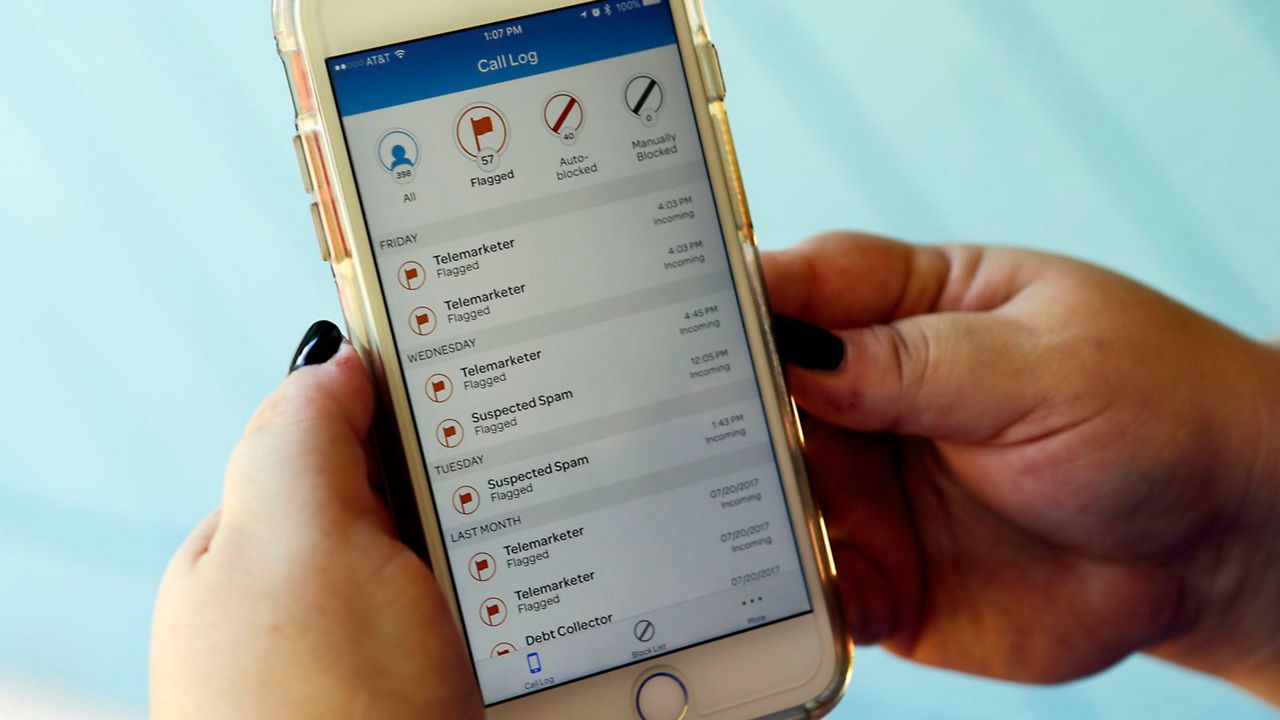No matter how many times she said “stop,” the texts kept coming. They made jokes and promises; they told her she was about to miss out. “Hellllo,” one said in all-caps. They came all through the summer of 2021, at 10:03 a.m. or 1:46 p.m. or 8:01 p.m..
The messages sent to Cheri Aul’s cell phone weren’t from an irritating ex-lover or a bygone acquaintance — they were from David’s Bridal. Aul, who is unmarried and wasn’t a customer of the formal-wear retailer, started receiving the texts when she changed phone carriers and got a new number. By August, she’d tracked down a phone number listed on the retailer’s website, under the heading “How to Unsubscribe.” She texted “stop” every time she got another text advertising a sale on bridesmaids’ dresses or a collection of autumnal shawls.
When that didn’t work, she hired a lawyer.
“It became excessively irritating, and as some would say, even borderline abusive,” said Aul, 46, who lives in Clearwater and works at a library.
Aul’s lawsuit, filed in September in Pinellas-Pasco circuit court as a class action, is among the first brought under a new law that expands the ability to go after robocallers and robotexters. It could also be an early test: In a motion to dismiss the case, attorneys for David’s Bridal argued this month that the law — which passed the Florida Legislature and went into effect last year — is unconstitutional.
To those who pushed for the law, it’s an exciting new weapon in a battle against rogue telemarketers, whether they’re scammers or legitimate businesses that overreach. Among proponents is Aul’s lawyer, Billy Howard, the founder of Tampa-based The Consumer Protection Firm. Howard calls robocalling a “massive invasion of privacy” that, if left unchecked, would turn into an “apocalyptic disaster.”
“We are very confident that our white hats are on properly, and we are facing a lot of bad guys, and now the ammunition we have is a really good law,” he said.
Aul approached Howard as a last-ditch effort. She said she expected to be told that there was nothing she could do but ignore and delete the messages. She had wondered whether she could take action against David’s Bridal under the Telephone Consumer Protection Act, a 1991 federal law that established the nationwide Do Not Call registry. But she hadn’t known that Florida lawmakers had taken up the issue in the wake of a ruling limiting the federal law.
Florida has long been a hotbed for both telemarketers and their targets, a reality Howard chalked up to a population that includes many older residents. Florida’s key telemarketing laws date to the 1980s, when it became the first state to establish a Do Not Call list. A few years later, the Telephone Consumer Protection Act limited how telemarketers could use automatic dialing systems and prerecorded messages. It allowed people to sue telemarketers who broke those rules or violated the Do Not Call list — though telemarketers themselves controlled that list for more than a decade, before the Federal Trade Commission took it over.
The government can go after violators, but those cases have been relatively rare. Andrew Cove, a former assistant attorney general in Florida who helped create the state’s 1989 Telemarketing Act, said that his office usually only went after cases that also involved fraud. He’s since become a defense attorney for telemarketers. These days, government agencies “only get involved if there’s millions of (violations) taking place and they want to send a message,” Cove said. In 2013, the Federal Trade Commission hit a St. Petersburg home lender with what was then the biggest Do Not Call fine ever: $7.5 million for more than 5 million violations.
But for the most part, Cove said, legal action around telemarketing happens in private litigation because of how laws are written, and because regulators haven’t made it a priority.
Through enforcement and self-policing, most legitimate companies now follow Do Not Call lists, experts have said. Howard noted that plenty of scammers still call numbers on the lists, though fraudsters would have bigger legal problems than telemarketing violations, should they be caught.
Now it’s robocalls that top the list of telemarketing concerns. The Florida Department of Agriculture and Consumer Services, which maintains the state’s Do Not Call list, used to broadly categorize telemarketing complaints under Do Not Call. In 2017, for example, it recorded more than 19,000 complaints on the issue. More recently, a spokesperson said, it has changed its categories to reflect that not all complaints have to do with a violation of the registry. Last year, the agency tallied 13,761 unsolicited communications complaints, and just 3,719 of them were explicitly about the Do Not Call list.
Unwanted calls remain atop the Federal Communications Commission’s list of consumer complaints. T-Mobile reported that scams and unwanted robocalls more than doubled last year compared to 2020. A 2018 Washington Post story reported that telemarketers have “outwitted the government and completely wrecked the Do Not Call list.”
Whether robocalls in general violate federal law has been a matter of debate. Automatic dialing systems were banned, but courts split over what an “automatic dialing system” is. Last April, the U.S. Supreme Court issued a ruling that gave a narrow definition: To be considered an autodialer, a system had to use a random or sequential number generator. Robocallers using other systems that stored and dialed numbers were in the clear.
While the court considered the case, Florida lawmakers introduced a bill to restrict telemarketers from using any system, random or not, to automatically call or text consumers without consent. Like the federal law, it allowed people to sue telemarketers for $500 per violation, or $1,500 if they could prove the telemarketers knew what they were doing, plus attorneys’ fees. Three weeks after the Supreme Court ruling, state senators passed the bill. The House passed it a week later.
The effects of the new law are still emerging, experts said. Cove said his Fort Lauderdale firm has taken about a dozen such cases since late last year, more than usual. He expects an influx of suits as more people learn about the law. Howard said he expects the opposite — that most businesses will notice the implications of early class-action suits under the new law and change their practices.
But they can agree that few Floridians are likely to pity telemarketers.
“It’s self-evident that these marketers irritate people, especially if it’s a phone call,” Cove said. “They don’t have allies for the most part, aside from people like me who defend them.
“On the other hand,” he added, “when plaintiffs’ attorneys are making fees of a half-million dollars or a million dollars and they really only represent one consumer and file a class action … maybe there’s a point where it’s going too far.”
To get more news and information from this partner, subscribe here.




